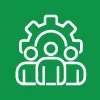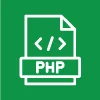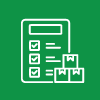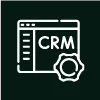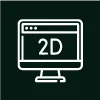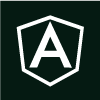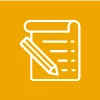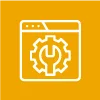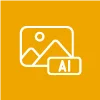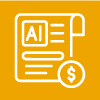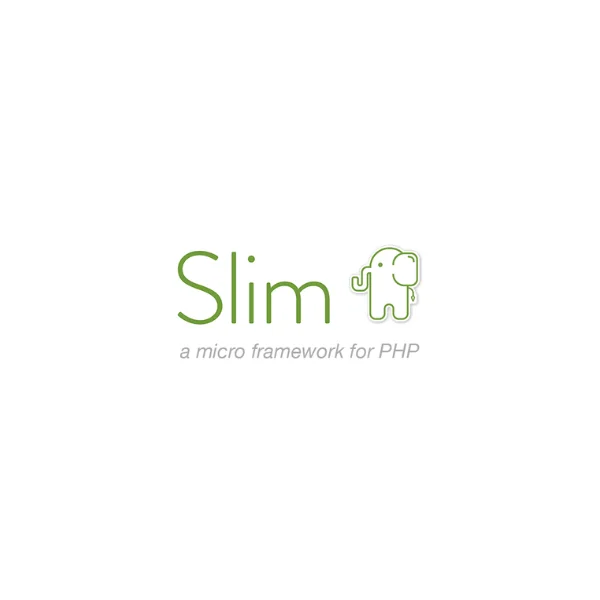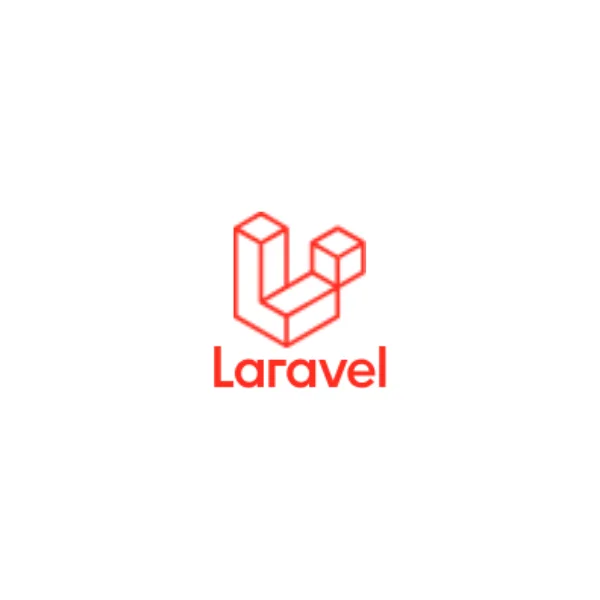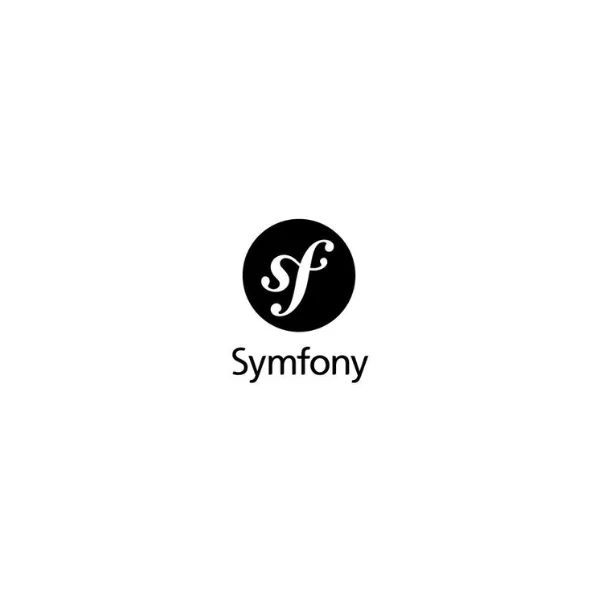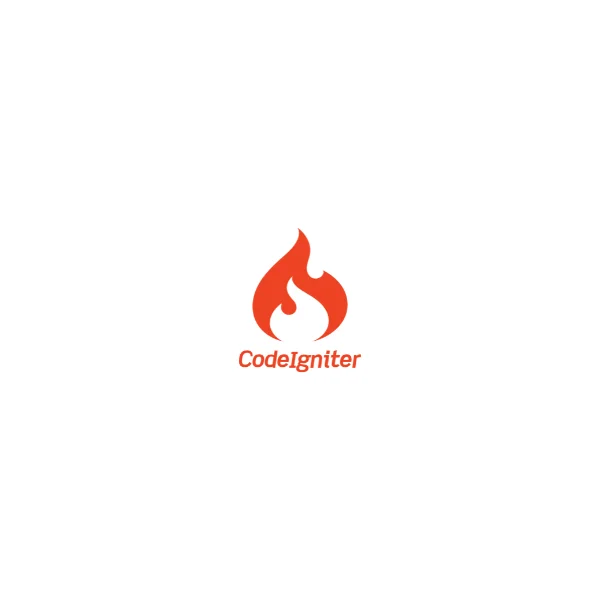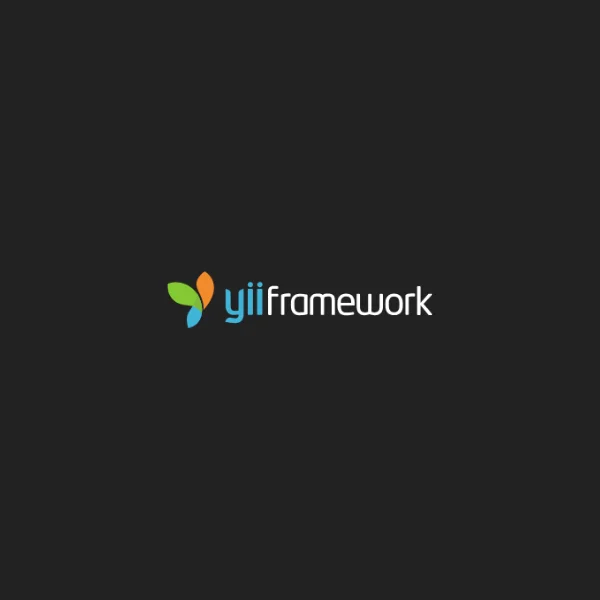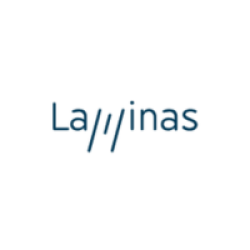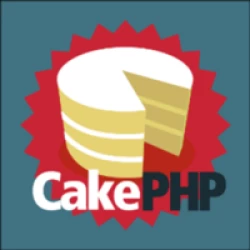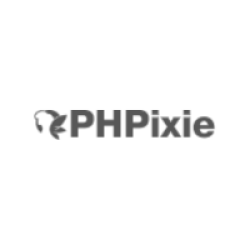Complete Overview of PHP Framework
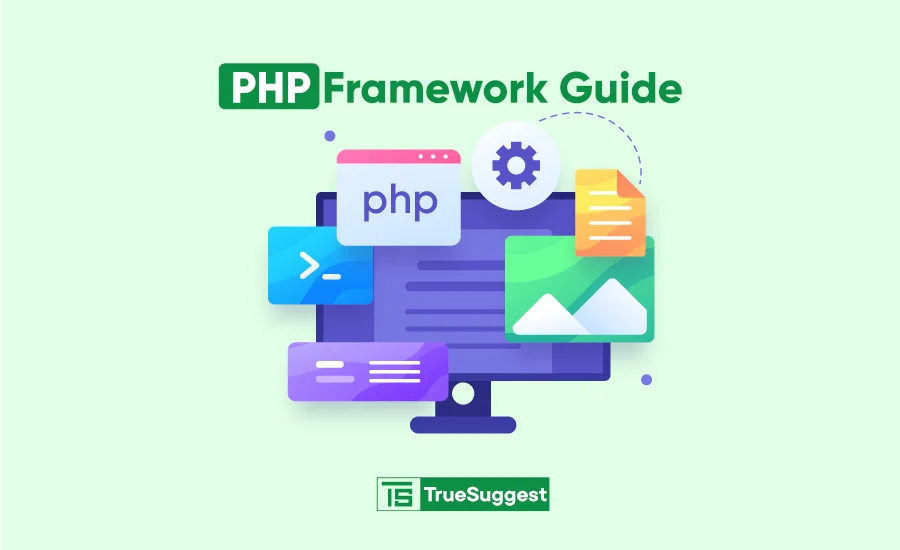
PHP is known for its scalability and ease of use functionality. It is also the world’s most popular scripting language. PHP frameworks are essential tools for modern web development. It provides a structured foundation for building dynamic websites and applications.
By using a PHP framework, developers can streamline their workflow, maintain consistency, and boost productivity.
PHP continues to be a popular choice among developers. Here in this blog, we will walk you through what is PHP framework and all of the details about it.
Let's get moving
What Is PHP?
PHP, which stands for Hypertext Preprocessor
It is a widely used, open-source scripting language primarily designed for web development. It is embedded into HTML, making it particularly useful for creating dynamic web pages and server-side applications.
As of 2023, over 75% of all websites with a known server-side programming language use PHP. It's highly influence the web development industry.
Its popularity stems from its ability to generate dynamic page content, manage databases, and support various web protocols. PHP’s extensive documentation, large community, and continuous updates contribute to its enduring relevance in the web development landscape.
What Is PHP Framework And How To Use It
First, we need to understand what is PHP framework even before moving on to the names of the best PHP frameworks.
A PHP framework is a platform that provides a structured environment for developing web applications. It offers pre-built modules, libraries, and tools to facilitate coding. It also helps to make the development process faster, more secure, and more efficient.
Common Features of PHP Frameworks
There are many options available to anyone who may be searching for PHP frameworks, and there’s even the option of creating your own. The basic common features of PHP frameworks are
- MVC Architecture
- Database Abstraction
- Form Validation
- Session Management
- Error Handling
- Caching
- Routing
- Templating Engine
- ORM (Object-Relational Mapping)
Using a PHP framework typically involves the following steps and let's discuss it.
Installation
Begin by installing the framework. Most frameworks offer easy installation via Composer, PHP's dependency manager.
Configuration
Configure the framework to match your development environment. This usually involves setting up database connections and configuring environment variables.
Routing
Define the routes for your application. Routing maps URLs to specific controllers and actions, making navigation within your app intuitive and logical.
Controllers and Models
Create controllers to handle user input and models to interact with the database. This separation of concerns helps in maintaining organized and reusable code.
Views
Develop the view components that render the user interface. Views are often written in HTML and embedded with PHP to dynamically display data.
Testing
Use the framework's built-in tools to test your application. Most frameworks offer unit testing and integration testing capabilities to ensure your code works as expected.
Deployment
Deploy your application to a web server. Frameworks typically provide tools and guidelines for deploying and managing applications in various environments.
PHP frameworks simplify many aspects of web development, from routing and database interactions to form validation and security measures.
What Is The Most Used PHP Framework
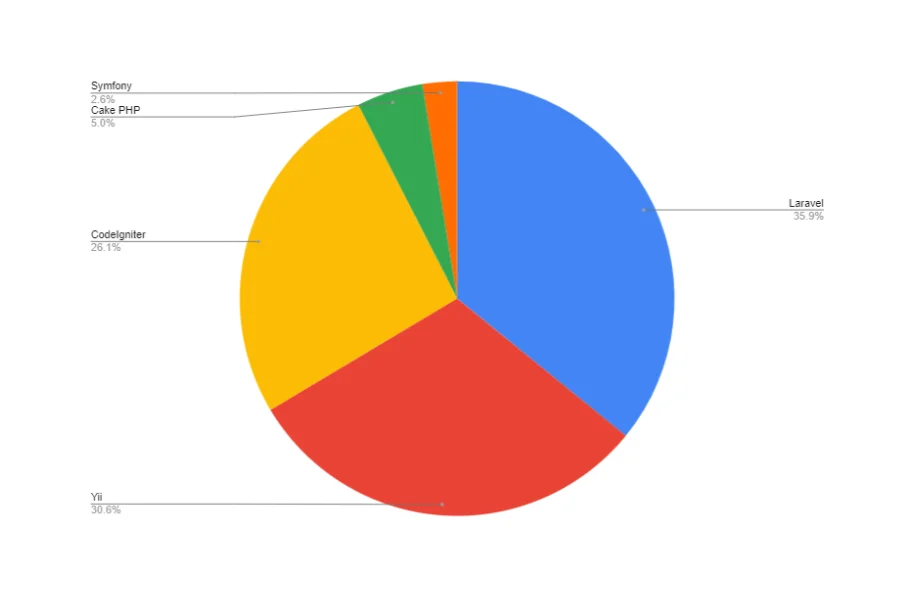
Among the various PHP frameworks available, Laravel stands out as the most popular and widely used. Laravel offers quality and convenience, seamless integration, increased development speeds, and enhanced security to developers. This is the reason why Laravel’s usage has expanded through industries globally.
Let's check the down chart to find out more details about it.
|
Framework name
|
Market Share
|
|
Laravel
|
35.87%
|
|
Yii
|
30.56%
|
|
CodeIgniter
|
26.05%
|
|
Cake PHP
|
4.95%
|
|
Symfony
|
2.57%
|
As all we can see that laravel stands out at the top of the list and its about 35.87%market share. It's more huge than other frameworks.
Around 3,462 established companies worldwide use Laravel in their tech stack partners. Some of the biggest companies that have adopted Laravel recently include
- Pfizer
- Liberty Mutual Insurance
- BBC
- Invoice Ninja
- About You
- DISQO
- TourRadar
- Magneto
- IT Solutions
- Unified InfoTech
- CrowdCube
- Alison
- MyRank & many more
Although the platform is open source and free to use and distribute, Laravel earns an estimated $15 to $25 million annually.
There are some other reasons why it is better than other PHP frameworks out there
- The Model-View-Controller architectural pattern support system
- Object-oriented libraries
- CLI (command-line interface) programs provide interactive access to functions and services for developers to more easily complete certain programming and maintenance tasks.
- Laravel’s templating engine
- Effective ORM and database management
- Routing in the Laravel framework
- Its 100 open source system
- You have the flexibility to build small websites to massive enterprise applications.
Things to Know Before Using PHP Framework
So before starting your php framework life journey need to learn something first.
1. Basic PHP knowledge
First things first, let's talk about PHP basics. You need to have a solid knowledge of
- PHP syntax
- Variables
- Data types
- loops
- Functions
- object-oriented programming (OOP).
These fundamentals form the backbone of PHP frameworks. If you have the basic knowledge about this then it will be easy to learn the next process.
2. The MVC Architecture
Ever heard of MVC?
Yes.Obviously, because we talk about it earlier in this blog.
Most PHP frameworks are built on the Model-View-Controller (MVC) pattern. Understanding this architecture is key to leveraging the full potential of PHP frameworks.
3. Database Know-How
Web applications and databases go hand in hand. That's why you need to be well-versed in SQL and have experience with relational databases like MySQL.
Additionally, understanding Object Relational Mapping (ORM) layers will give you a competitive edge.
4. Web Development Basics
No surprises here – a solid understanding of web development basics is non-negotiable. From HTTP to HTML, CSS, and JavaScript, you need to know the ins and outs.
5. Version Control Systems
Version control systems like Git are indispensable in web development. They streamline collaboration and help you manage code changes effectively. We'll show you the ropes, so you can Git going with confidence.
6. Mastering Object-Oriented Programming (OOP)
PHP frameworks rely heavily on Object-Oriented Programming (OOP) principles. Classes, objects, inheritance – it's essential to have a solid understanding of these concepts.
7. Navigating Automated Testing
Last but not least, let's talk about automated testing. In the realm of modern software development, testing is important. Most PHP frameworks come equipped with built-in testing capabilities.
Why Use A PHP Framework? Reason to Choose
Using a PHP framework can save time and reduce the complexity of coding from scratch.
Upgradeable Security Features
As all we know its security features are quite impressive than other frameworks. PHP frameworks come with built-in security features. They protect against common threats such as SQL injection and cross-site scripting. By using a framework, developers can ensure their applications are more secure and safe from unusual attacks.
Faster the Development Process
Frameworks speed up the development process. Time is a precious commodity for any business website or web application. To maximize your benefits, launching on schedule is essential. As previously noted, PHP frameworks significantly reduce development time compared to starting from scratch. Utilizing a PHP framework is akin to working with a pre-fabricated template. It's complete with various components for essential functionalities such as
- Login systems
- Forms
- Server interactions
- HTTP requests and more.
Indeed, frameworks offer efficient tools for debugging and testing.
Improved Code Structure
Using PHP frameworks during development brings a host of benefits to enforce the MVC (Model-View-Controller) pattern.
A standout advantage is the MVC architecture. This modern approach in web development, employed by PHP frameworks, accelerates and simplifies the process.
MVC, which stands for Model, View, and Controller
It is an architectural pattern that offers a solid and reliable development structure. It helps to make the code more manageable and scalable.
MVC doesn’t just speed up web development; it also offers an efficient architecture for websites and web apps. This structure allows multiple developers to work independently on different layers of a project without compatibility issues.
It also improves collaboration among developers.
Community Support and Resources
Most PHP frameworks have large communities. This means you have resources, tutorials, and forums. Developers can find solutions to issues quickly and learn best practices. So if you are a beginner and want to learn the PHP framework it's easy to find everything. Sometimes senior developers face some major problems and community support is the solution to that.
A developer can even download and use other people's open-source codes and use them when needed. So saving huge time for a developer.
Optimized overall Performance
Frameworks are optimized for performance. They come with caching mechanisms and efficient database management. This ensures that applications built with frameworks run smoothly and handle traffic effectively.
Flexibility and Scalability
Developers flock to frameworks for their stability.
Using a framework allows for flexible and scalable development. Frameworks support modular coding, making it easy to add new features. They also help in scaling applications as the user base grows.
While PHP's simplicity is one of its biggest draws, making it a favourite among many developers. Especially for beginners, it's alarmingly easy to write flawed code without noticing.
Consistency in Coding
Frameworks promote consistency in coding. They provide guidelines and standards that all developers can follow. This results in cleaner and more uniform code, which is easier to maintain and debug.
How to choose the best PHP framework-For Business
There are many types of framework in PHP like
- Laravel
- Symfony
- Yii 2
- CakePHP
- CodeIgniter
- Zend Framework
- Phalcon
- Slim Framework
- FuelPHP
- PHPPixie
So, Selecting the perfect PHP framework for your business or web development project involves considering several key factors.
Curious about what those might be?
Here we give you some tactics to select the best one for your business.
1. Project Requirements
Note down the requirement
The first thing to consider is the specific needs of your project. Do you need a framework for a large-scale enterprise application, or something lightweight for a smaller project? The scope and complexity of your project will largely determine which framework is best.
2. Learning Curve
Some frameworks are easier to learn than others. If you have a team of developers, their familiarity with the framework is crucial. Laravel, for example, is known for its ease of use, while Symfony might have a steeper learning curve. So learning curve is essential before choose one.
3. Community Support
A 24/7 support policy
A strong community can be a lifesaver when you run into issues. Frameworks like Laravel and Symfony have large, active communities that can provide support, plugins, and additional resources.
4. Documentation and Resources
Good documentation is essential for any framework. It helps you understand how to use the framework and troubleshoot problems. Laravel and Symfony are known for their excellent documentation, which can be a significant advantage.
5. Performance and Scalability
Consider the performance needs of your application. Frameworks like Phalcon are designed for high performance, while others may offer better scalability for large applications.
6. Security Features
Security should always be a top priority. Look for frameworks with built-in security features like input validation, output escaping, and protection against common threats like SQL injection and XSS.
Endnote
This article will help you learn what PHP framework is and how it is different from other frameworks. It helps make the development process simpler. It's also easier work to produce attractive apps.
By choosing a suitable framework for your project, you can boost your development process and build excellent, maintainable applications.


